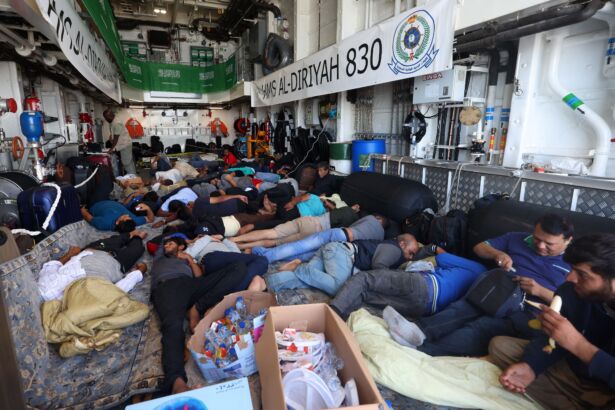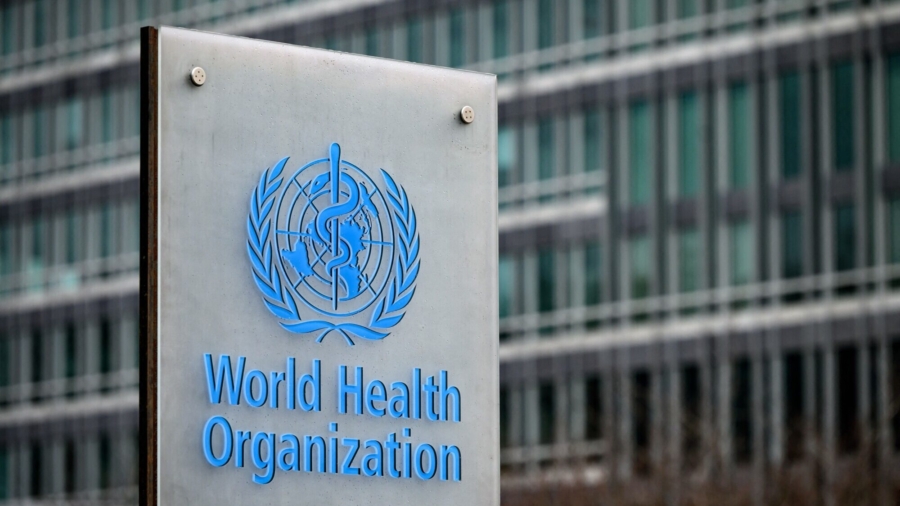A World Health Organization (WHO) official said on Tuesday that a second risk assessment found that there was a “moderate risk” related to the seizure of a public health laboratory in the Sudanese capital by one of the warring parties.
“The situation and the risk are being seen as moderate,” WHO spokesperson Tarik Jasarevic told reporters at a United Nations briefing in Geneva, Switzerland.
“This is because the lab cannot provide its main function, that is to provide the analysis and the diagnostics because of the lack of fuel and lack of trained staff,” he added.
Dr. Nima Saeed Abid, the WHO’s representative in Sudan, said last week that there was a “huge biological risk” in Khartoum after one of the fighting groups took control of a laboratory containing samples of deadly diseases.
Abid expressed grave concern at the U.N. briefing on April 25, telling reporters via a virtual call from Port Sudan that the situation was “extremely, extremely dangerous,” adding technicians were unable to secure hazardous materials from the laboratory because armed forces removed them from the building.
“We have polio isolates in the lab. We have measles isolates in the lab. We have cholera isolates in the lab,” Abid said. “There is a huge biological risk associated with the occupation of the central public health lab in Khartoum by one of the fighting parties.”
Neither Jasarevic nor Abid revealed which of the fighting sides had taken control of the laboratory, which also reportedly contains a major blood bank.
The public health laboratory is located in central Khartoum, close to flashpoints of the fighting that pits Sudan’s military against the Rapid Support Forces (RSF), a paramilitary group that grew out of the notorious Janjaweed militias implicated in atrocities in the Darfur conflict.
Conflict
Hundreds of people have been killed and thousands wounded since a long-simmering power struggle between the Sudanese army and the paramilitary erupted into conflict on April 15. The parties have fought on despite a series of ceasefires secured by mediators, including the United States.
Meanwhile, the warfare has also prompted multiple countries, including the United States, to evacuate their diplomatic staff and shut down their embassies. A number of countries are in the process of conducting one of the biggest international evacuations in years as their nationals flee the sudden outbreak of fighting.

The U.N. warned on Monday that the conflict could force 800,000 people to flee the country as battles between rival military factions persisted in Khartoum despite the supposed ceasefire.
In a statement, the U.S. Department of State said a government-backed convoy carrying American citizens arrived at Port Sudan on April 29 in the first U.S.-run evacuation. Port Sudan, which sits near the Red Sea, is located hundreds of miles away from Khartoum.
“The U.S. government has taken extensive efforts to contact U.S. citizens in Sudan and enable the departure of those who wished to leave,” the statement reads. “We messaged every U.S. citizen in Sudan who communicated with us during the crisis and provided specific instructions about joining this convoy to those who were interested in departing via the land route.”
“We encourage U.S. citizens who want to leave Sudan but chose not to participate in this convoy to contact the Department of State using the crisis intake form on our website,” it added.
The fighting has derailed an internationally backed political transition aimed at establishing a democratic government in Sudan, where former autocratic President Omar Hassan al-Bashir was toppled in 2019 after three decades in power.
Two Americans have been killed in the fighting. One was a U.S. civilian who was caught in the crossfire between the two sides, officials said, noting that the other was a doctor from Iowa who was stabbed to death near his home in Khartoum.
Reuters and The Associated Press contributed to this report.

